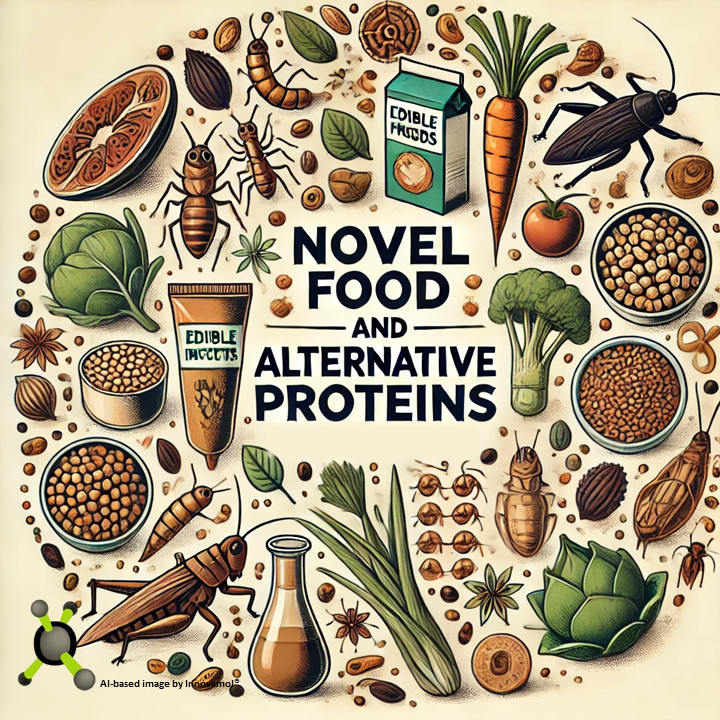Innovamol’s team has worked on a comprehensive analysis of novel foods and alternative proteins to inquiry the perception and claims held by European stakeholders. This deep dive, explored the emerging categories of novel foods, including those derived from plants, insects, lab-grown cells, and innovative production processes. Classified as “novel” under EU regulation, these food categories undergo rigorous safety assessments before they can enter the European market, ensuring they meet the highest standards for consumer health and safety.
Our literature search focused on grey literature, highlighted several critical areas of focus in the regulatory and consumer landscape surrounding novel foods. It emerged that the harmonisation of regulations across the EU became essential for fostering both innovation and consumer trust, as fragmented regulations can create barriers for businesses and uncertainty for consumers. This was especially evident in the food supplements sector, where inconsistent regulations prevent market growth and raise questions about consumer protection (European Federation of Associations of Health Product Manufacturers, 2024). However, promoting a unified regulatory approach that encourages innovation without affecting safety requires addressing the abovementioned disparities.
Additionally, the rise of alternative protein sources like insects and lab-grown meat is bringing exciting opportunities and unique challenges. While these proteins offer promising solutions for sustainability and food security, they also raise concerns about allergenic potential, pathogen risks, and consumer acceptance (Federal Agency for the Safety of the Food Chain, 2023; German Federal Institute for Risk Assessment, 2023). As novel foods become popular, international cooperation is essential. To facilitate global trade and foster innovation, agencies like the OECD and USDA stress the necessity of standardised safety procedures (Organisation for Economic Co-operation and Development, 2023). In conclusion, by aligning standards worldwide, the potential of novel foods can be maximized to support more resilient and sustainable food systems.
This work was carried out under a contract with the European Food Safety Authority (EFSA), EFSA/2023/OP/0007 (OC/EFSA/ENREL/2023/01). The opinions expressed are solely those of the contractor and do not represent the official position of EFSA. If you are interested in these kind of works or topics get in touch with us!
For readers which are interested in exploring these findings and more in detail, the full report is available at the following links.
“Quant à l’avenir, il ne s’agit pas de le prévoir, mais de le rendre possible” (As for the future, your task is not to foresee it, but to enable it) – Antoine de Saint-Exupéry

